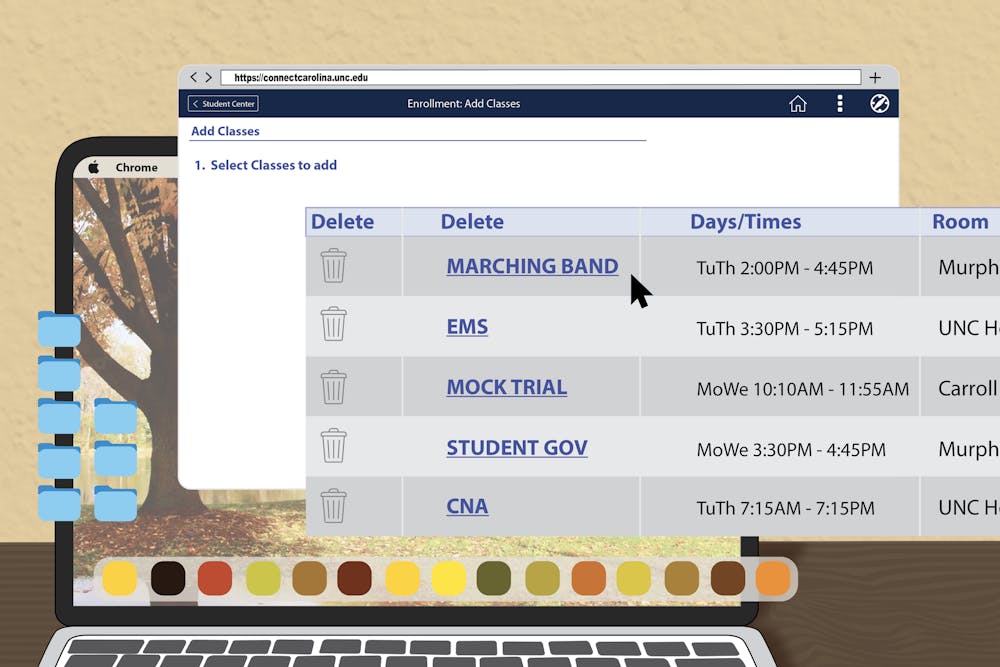As America’s education system becomes increasingly saturated with new industries and curriculums, the expectation for students to balance academics, extracurriculars and service is becoming unmanageable. UNC should consider a more diverse range of credit opportunities before students forget to gather real world skills altogether.
Students are looking to further both their professional life and their passions during university years, but it gets muddied by requirements or course offerings that aren’t always relevant or impactful. UNC lauds the IDEAs in Action curriculum as necessary to a holistic education, so wouldn’t more flexible, major-specific curriculums also contribute?
Any organization that has a specific time frame and an expected number of hours required could potentially contribute to a degree. Certain research and study abroad programs count for credit for these reasons. The point of higher education is to allow students specificity and freedom, and UNC has resources at its disposal to do so for most majors.
Many medical graduate schools require a certain number of hours working health jobs, and often take a gap year to get them. If UNC starts allowing hours to contribute to an undergraduate degree, students are less stressed, gain hands-on experience and health organizations find more skilled people working for them.
Campus EMS Services takes student volunteers. If credit hours towards certain medical degrees were offered, students doing EMS services would most likely be future professionals. So, they will seek to increase their expertise and contribute to the best of their ability, which makes the overall student body safer. This would also strengthen the health industry over time, as students have more applicable experience behind them.
For this same reason, some schools allow Mock Trial to count as law credit. Mock Trial members gain real world insight into the courtroom while participating in realistic cases.
We joke about how the next generation of doctors and lawyers will have "ChatGPTed" their way through classwork, and that we have to put our lives in those hands. If UNC values students having problem-solving skills under pressure and varied circumstances, it should provide credit for involvement in organizations that require students to think for themselves and interact with the community.
UNC relies on music ensembles for events and school pride, and many music majors join them for practice. The music major requirements are geared toward offering an array of music skills. However, for students more interested in performance, the current system may be detrimental.
Say you want to pursue performance art after college, so you focus on the ensemble performance electives. One of the electives, marching band, is one credit per semester despite requiring at least 260 hours of work. After three ensemble credits, they don’t count towards a music major anymore. Older students in harder classes are discouraged from dedicating time they don’t have toward ensembles when they don’t contribute to their major.




